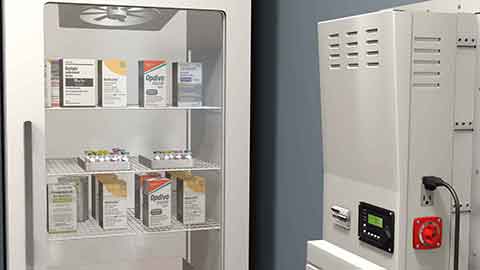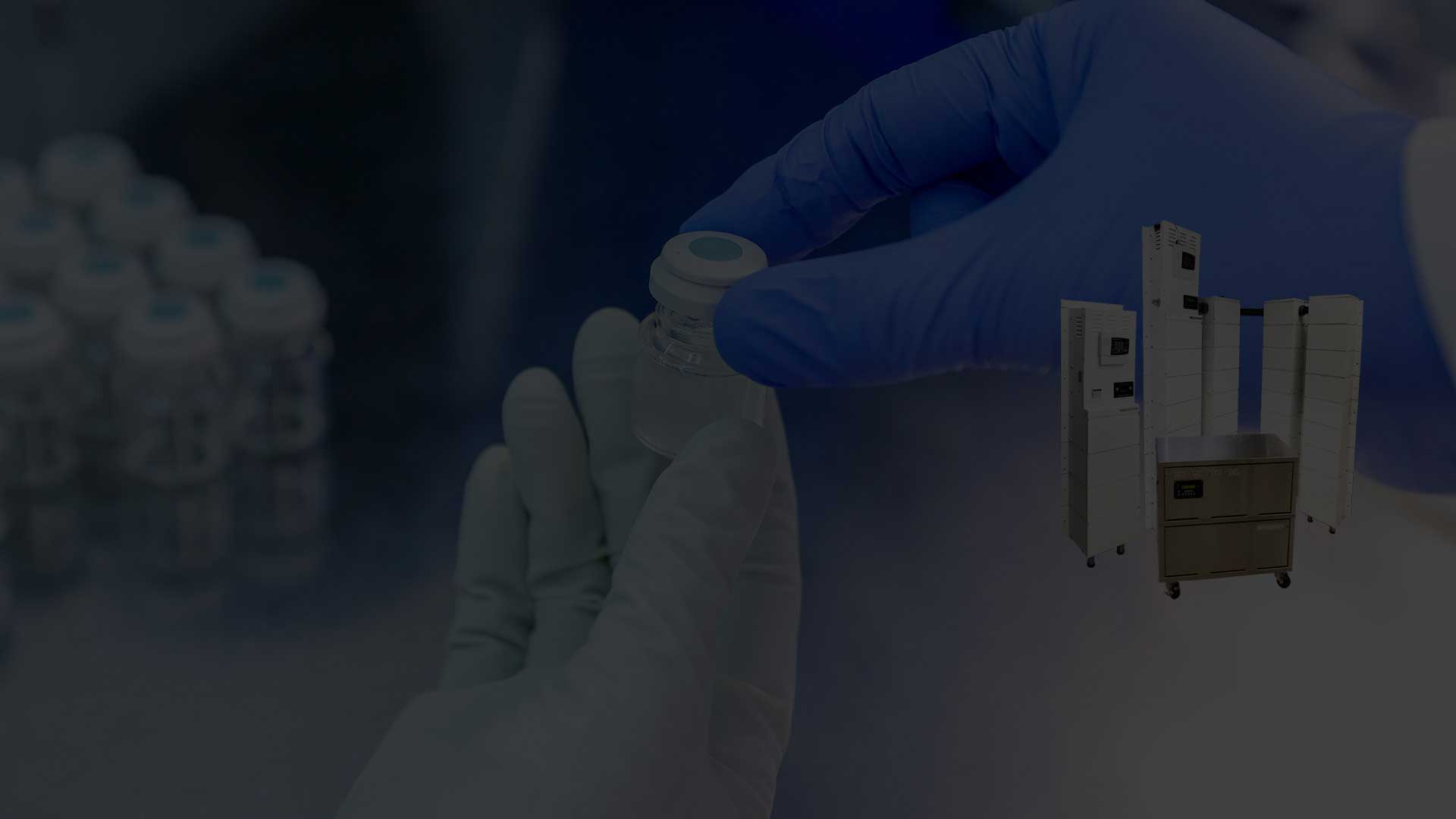Tips for Maintaining Proper Flu Vaccine Storage Temperature
The US Center for Disease Control and Prevention (CDC) recommends the optimal flu vaccine storage temperature range to be between 2oC and 8oC (35°F – 46°F). If a vaccine goes beyond this range, either below or above, it risks losing its efficacy. When this occurs it is referred to as a “temperature excursion.”
Flu vaccines are highly susceptible to the effects of excursions due to their contents. Live attenuated virus cells (a.k.a dead flu viruses) are especially susceptible to the effects of temperature fluctuations. Thus, optimized vaccine storage can prevent the waste and financial loss associated with unwanted temperature excursions.
Ultimately, flu vaccine providers must ensure their vaccine supplies are safely stored. The CDC's recommendation for the safe storage of vaccines includes flu vaccines, and following them helps facilities ensure that every flu vaccine dose counts (close to 200 million doses are administered per year in the US.)
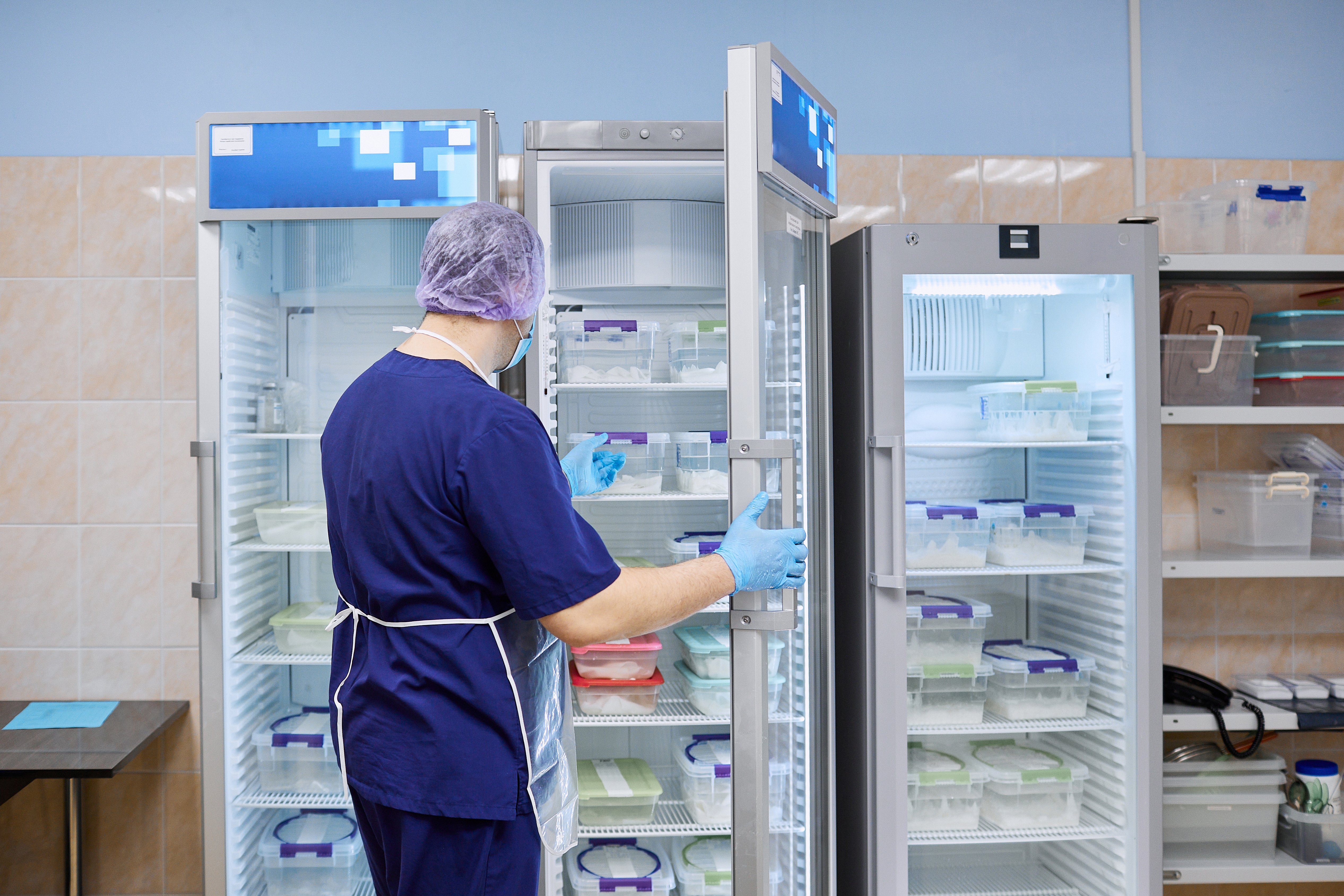
What You Need To Know About Proper Flu Vaccine Storage & Refrigeration
1. A Proper Medical Refrigerator/Freezer Solution Is Essential
The ideal refrigeration unit for flu vaccines is pharmacy-grade/medical refrigerator or at a minimum a stand-alone type. However, facilities may use household combination units in some cases. But they must never use smaller dormitory-style units as they cannot maintain proper even temperatures and lack effective temperature sensors.
2. Correct Flu Vaccine Refrigerator/Freezer Temperature Settings
It would be best to always store your flu vaccine in a refrigerator at temperatures between 2o and 8oC. It should never be kept frozen or stored outside a fridge. Compared to other common vaccines, such as the COVID-19 vaccine, the flu vaccine is generally held at similar temperatures.
3. Flu Vaccine Storage Best Practices
Vaccines must remain refrigerated as they become less effective and potentially unsafe if held outside a refrigerator. In addition, flu vaccines should never be frozen.
If you have vaccines that have been left out of the refrigerator, frozen, or experienced a temperature excursion event, it is best not to administer them to patients. Instead, document the event and contact your vaccine manufacturer or state immunization program for guidance.
Additionally, combination refrigerator units are not recommended for vaccine storage as they do not ensure even temperatures in both compartments. If you use a combination unit, the CDC recommends that you only store vaccines in the refrigerator compartment of the unit.
Avoid storing vaccines in the freezer compartment. However, do not turn off the freezer compartment altogether. This may negatively affect the refrigerator's temperature. Many combination units use the cold air from the freezer to cool the refrigerator compartment.
4. Don’t Store Frequently Accessed Materials in the Same Fridge/Monitor the Temperature
The frequent opening and closing of the refrigerator door to access the other items can cause significant temperature excursions. This can lead to reduced flu vaccine efficacy. Therefore, it is best to store frequently accessed non-vaccine items in their own fridge if possible. If not, a wireless temperature monitoring system is highly recommended to ensure proper temperatures.
5. Place Flu Vaccines in the Middle of the Refrigerator
It is best to store flu vaccines away from the top or back of the refrigerator unit. Storing vaccines on the top shelf of the refrigerator, especially if there is a freezer compartment above the fridge with a cold air vent.
This is one reason pharmacy-grade refrigerators are preferable to household units. In addition, pharmacy-grade refrigerators have fans circulating the air to ensure more consistent temperatures.
6. Utilize a Flu Vaccine Temperature Log
It would be best if you kept a flu vaccine temperature log where you record the minimum and maximum refrigerator temperatures at the beginning and end of each day. The CDC recommends using a temperature monitoring device like a digital data logger to record the temperatures.
Furthermore, keep a log of the room temperature where the refrigerator is kept. This record will be handy if you have a temperature excursion or refrigerator failure.
With it, you will have a clearer picture of the temperature to which your vaccines have been exposed. The insight will be helpful in the troubleshooting process.
7. Hold on to Flu Vaccine Storage Temperature Logs for the Correct Period Of Time
The CDC recommends keeping all flu vaccine temperature logs for three years. This is because you may be required to provide your temperature logs, especially if you are participating in your state's Vaccines for Children (VFC) program.
8. What To Do If You Experience A Temperature Excursion
The first thing you need to do as soon as you discover an excursion event is to label the
inventory "Do Not Use."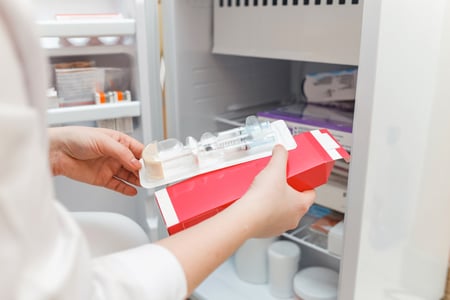
Afterward, report the incident and fill out any vaccine storage troubleshooting records used at your practice.
Furthermore, contact your vaccine manufacturer or local or state health department to determine whether the affected vaccines are safe to administer or should be discarded.
Moreover, it is vital to isolate the cause of the temperature excursion and correct things as swiftly as possible. Some of the usual culprits are:
- Power outages due to weather conditions
- Disruptions in the flu vaccine refrigerator due to fluctuations in utility power supply.
- Poorly performing refrigerator due to a manufacturer error
One Preventative measure could be include installing a battery backup system for your flu vaccine refrigerator. The backup system ensures that, should an outage occur, your appliances can continue to function and vaccines remain at their proper temperatures.
Medi-Products' Battery Backup Systems Provide an Excellent Solution for Emergency Power Needs.
Medi-Product’s entire line of plug and play battery powered backup generators are line-interactive, enabling them to monitor power input and automatically engage when an outage occurs. When not being used, they can automatically charge their batteries
However, as soon as the battery system senses a loss of utility power, it switches to its batteries and keeps your machine powered in milliseconds—meaning almost all equipment will continue to run as if nothing happened.
Furthermore, our systems are custom-sized to meet desired runtimes and support specific appliances as requested. Common requests include systems that can power entire procedure rooms or ultrasound labs for 8, 12, 24, and even 48-hours with one single system that all appliances can plug directly into.
And with three separate form factors to choose from, a MediProducts battery backup is sure to fit anywhere inside your facility whether you need: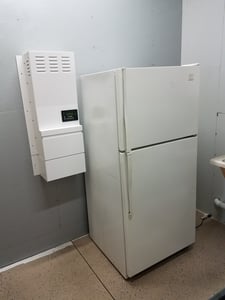
- A standalone Plug-and-Play solution in the same room as your medical equipment,
- A Portable power station that can be moved around the room or your facility
- Or, a backup power system that remotely supplies power to the outlets your appliances are connected to.
Ensuring that no matter your needs the proper solution can be easily found.
All you need to do is contact us, and one of our product experts can quickly and easily design exactly what you need.
